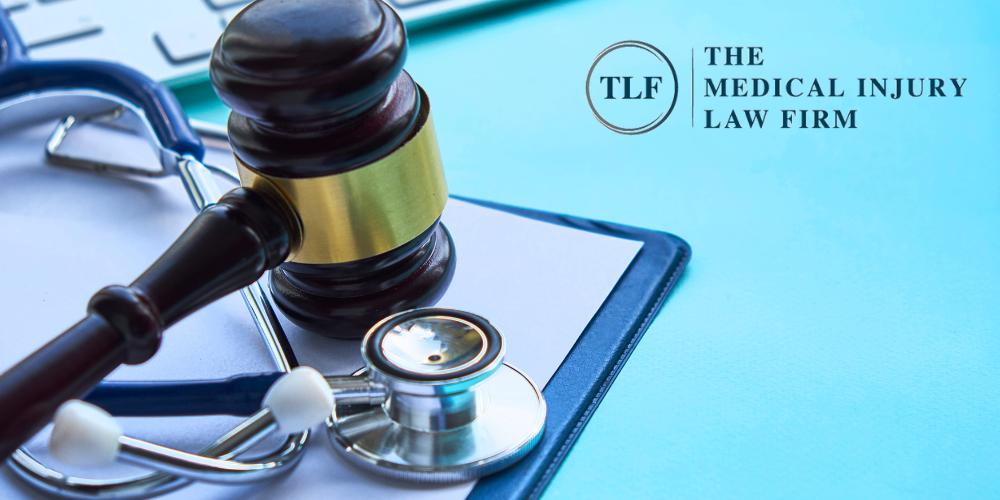Putting Our Knowledge And Experience To Work
Home » Medical Malpractice » Nerve Damage After Surgery
Nerve Damage After Surgery Malpractice Lawyers
Ohio and Northern Kentucky Medical Malpractice Lawyers for Nerve Damage After Surgery
The nervous system is one of the most complicated systems in the human body, with over 35 miles of nerves stretching throughout various parts of the body. It’s also one of the most delicate systems in our bodies, so when these nerves are damaged, they can cause serious complications.
Nerve damage can occur in a variety of ways, including during surgery. Nerves that are stretched, compressed, or cut during surgical procedures can cause a loss of function, loss of sensation, and chronic pain near the site of the surgery.

If you or a loved one has experienced nerve damage from a surgical procedure, the Ohio and Kentucky surgical malpractice attorneys at TLF: The Medical Injury Law Firm are here to help. Our skilled attorneys are here to listen, evaluate your case, and provide the legal support you need. We are committed to advocating for your rights and helping you navigate the path to recovery. Call (800) 698-4054 or complete our online intake form to schedule a free consultation with a medical malpractice lawyer on our team today.
What is Nerve Damage?
Nerve damage, also known as neuropathy, is the impairment or dysfunction of one or more nerves within the body. Nerves transmit signals between the brain and different parts of the body, which aids in essential functions such as movement, sensation, and coordination.
When these nerves sustain damage, it can disrupt the communication between the affected area and the brain. Common symptoms of nerve damage may include numbness, tingling, weakness, or a loss of sensation in the affected area. In more severe cases, individuals may experience chronic pain or difficulties in coordinating movements.
Can Surgery Cause Nerve Damage?
Yes, surgery can cause a person to suffer from permanent nerve damage. Surgical procedures require extreme precision and expertise in order to avoid complications. However, due to the intricate nature of the human nervous system, the nerves are very susceptible to accidental damage during surgery.
Nerve damage is more likely to occur during certain surgical procedures. Procedures involving the spine, joints, or peripheral nerves inherently carry a higher risk due to how close those areas are to critical neural structures.
Causes of Surgical Nerve Damage
Surgical nerve damage can result from various factors. One of the main causes of nerve damage during surgery is direct trauma to the nerves. If a medical professional nicks or slices a nerve during surgery, the outermost layer of the nerve can sustain damage, which is oftentimes permanent.
Another common cause of nerve damage during surgery is compression. When a nerve is put under too much pressure, it can cause damage to the nerve, leading to numbness or even pain. Additionally, inflammation in and around the surgical area can also cause damage to the nerves.
Nerve damage can also occur as a result of an anesthesia mistake. Certain anesthetics are administered via an injection in order to prevent nerve signals in a certain area from reaching the brain. If the injection needle hits a nerve or if anesthetics are injected into a nerve, it can potentially cause irreversible damage.

How Do You Know If You Have Nerve Damage After Surgery?
Nerve damage can manifest itself in various ways. Some of the most common signs of nerve damage after surgery include:
- Numbness or tingling
- Weakness
- Shooting, burning, radiating, or sharp pain
- Loss of coordination
- Hypersensitivity to touch and temperature
- Loss of sensation to touch and temperature
- Inability to sense pain
- Changes in reflexes
- Difficulty balancing
- Muscle atrophy
If you have noticed one or more of these symptoms near your surgery site, report your symptoms to medical personnel as soon as possible. This will allow for prompt diagnostic testing and medical treatment, if necessary.
It’s important to note that the symptoms of nerve damage can vary from person to person. Nerve damage may manifest in different ways based on the type of surgery performed, as well as the patient’s overall health and the specific nerves involved. Additionally, abnormal nerve damage can result in different symptoms, so be sure to talk to a medical professional if you notice anything different or out-of-the-ordinary after surgery.

Can You Sue a Surgeon for Nerve Damage?
Yes, if you have suffered from nerve damage as a result of a surgical procedure, you may be able to file a medical malpractice lawsuit against the medical professionals responsible for your injury. However, this only applies to situations where the nerve damage is a result of medical negligence. A surgical malpractice attorney can examine your case and determine whether or not you have a viable case.
Proving Medical Negligence Occurred
In order to receive compensation for surgical nerve damage, the victim will need to prove that they suffered from nerve pain as a result of a medical provider’s negligence. They can do this by establishing the four elements of negligence, which are:
- Duty of Care – the responsibility of a medical professional to provide their patient with a certain amount of care
- Breach of Duty of Care – the medical provider’s failure to uphold that duty of care
- Causation – the link between the breach of duty of care and the patient’s injuries
- Damages – the losses that the victim suffered from as a result of the accident
In order to establish a baseline of care, a medical expert in the same field can testify to the standard of care expected of professionals in their field. Additionally, the patient may need documentation of medical records, including pre-operative assessments, surgical notes, and post-operative care to substantiate their claim.

Compensation for Nerve Damage After Surgery
Victims of nerve damage can recover compensation for any losses that they have suffered as a result of their nerve injury. These can include both economic and non-economic damages. Economic damages are the monetary losses the victim suffered from, like medical bills, physical therapy expenses, and loss of earning capacity.
Non-economic damages, on the other hand, are losses that are much harder to quantify. These can be things like pain and suffering, emotional distress, and loss of quality of life. Nerve damage can have a widespread impact on a person’s physical and mental wellness. That’s why it’s important for injury victims to receive compensation for all of their losses, even if their damages don’t have an invoice or bill attached to them.
On top of that, victims of malpractice may even be able to seek punitive damages against the negligent medical provider who caused their injuries. This is often reserved for extreme cases, like when a patient suffers from serious nerve damage as a result of recklessness or gross medical negligence. Punitive damages are used as a penalty to prevent medical professionals from making these mistakes in the future.
How an Experienced Medical Malpractice Attorney Can Help With Your Claim
If you have suffered from nerve damage as a result of a surgical error, you need a surgical malpractice attorney who can help you navigate the legal system. Medical malpractice cases involve intricate legal processes and require a mountain of convincing evidence. Collaborating with a skilled attorney ensures that your medical malpractice case is comprehensively addressed, giving you the best possible chance for a fair and just resolution.
An experienced medical malpractice attorney can work with medical experts to establish a clear link between your surgeon’s actions and the resulting nerve damage. They also play a pivotal role in collecting and scrutinizing medical records, identifying deviations from standard protocols, and building a strong case for medical negligence.
Additionally, a skilled attorney will be well-versed in the legal processes, deadlines, and requirements specific to medical malpractice claims. They can guide you through the process of filing a lawsuit, ensuring that all vital documentation is filed within the necessary amount of time.
Beyond the legal aspects, an empathetic and knowledgeable medical malpractice attorney will understand the emotional toll that a surgical error can take. They can provide you with invaluable legal support while also showing you compassion and understanding throughout the process. Overall, a good medical malpractice attorney is the key to seeking justice in your nerve damage case.

If You Or a Loved One Suffered Nerve Damage After Surgery, Call TLF: The Medical Injury Law Firm Today
When patients undergo surgery, they place a lot of trust in the hands of the medical professionals caring for them. Unfortunately, medical professionals sometimes breach that trust, causing their patients harm. If you or a loved one has suffered from nerve damage as a result of a surgical mistake, you deserve justice.
At TLF: The Medical Injury Law Firm, we understand the impact that significant nerve damage can have on your life. That’s why our dedicated Northern Kentucky and Cincinnati medical malpractice attorneys are committed to providing victims of surgical errors with comprehensive legal representation. We can help you file your medical malpractice lawsuit so that you receive the compensation you deserve.
We are proud to serve the residents of both Ohio and Kentucky, so call our office closest to you and schedule a free consultation with a member of our team today. You can reach our Cincinnati, OH office at (513) 643-1689 and our Covington, KY office at (859) 898-2472. You can also call us toll-free at (800) 698-4054 or contact us online to get in touch.
Practice Areas
You Pay No Fees Unless We Win!
We are happy to offer a free consultation to evaluate your case. If you hire us as your legal counsel, we will represent you on a contingency-fee basis. You will pay no attorneys’ fees unless we recover financial damages.
